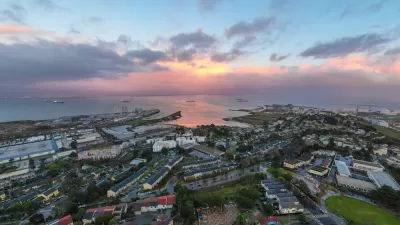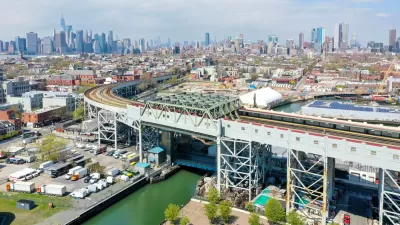Forrest Hill building faces strong opposition from wealthy neighbors.
A planned five-story apartment building for low-income seniors to be built by a non-profit developer in the wealthy Forest Hill neighborhood faces adamant obstruction.
San Francisco regularly ranks among the most expensive places to live in the United States. The housing crunch there is so dire that studies show it's negatively impacting the employment and GDP of the entire state.
Unfortunately, identifying the problem of a housing crunch is easier than solving it. While city officials were initially thrilled to hear about the Forrest Park development, it now seems unlikely to happen. Local attorney, Joe Bravo, who is heading the effort against the project explained to the San Francisco Chronicle that the effort to stop the building, "Is not a question of being a NIMBY. It’s a question of saving the Hill."
J.K. Dineen reports that, "Some residents took pains to say it was the height and density of the building that they opposed, not the fact that it would house low-income seniors, 20 to 30 percent of whom would be formerly homeless." Others shared worries that they would be concerned about letting their children play outside if the building was allowed to go up. Because of the lack of support, Norman Yee, head of the Board of Supervisors said he would be unable to support the development in its current form.
FULL STORY: In a wealthy SF neighborhood, residents fight low-income housing

Planetizen Federal Action Tracker
A weekly monitor of how Trump’s orders and actions are impacting planners and planning in America.

Congressman Proposes Bill to Rename DC Metro “Trump Train”
The Make Autorail Great Again Act would withhold federal funding to the system until the Washington Metropolitan Area Transit Authority (WMATA), rebrands as the Washington Metropolitan Authority for Greater Access (WMAGA).

The Simple Legislative Tool Transforming Vacant Downtowns
In California, Michigan and Georgia, an easy win is bringing dollars — and delight — back to city centers.

The States Losing Rural Delivery Rooms at an Alarming Pace
In some states, as few as 9% of rural hospitals still deliver babies. As a result, rising pre-term births, no adequate pre-term care and "harrowing" close calls are a growing reality.

The Small South Asian Republic Going all in on EVs
Thanks to one simple policy change less than five years ago, 65% of new cars in this Himalayan country are now electric.

DC Backpedals on Bike Lane Protection, Swaps Barriers for Paint
Citing aesthetic concerns, the city is removing the concrete barriers and flexposts that once separated Arizona Avenue cyclists from motor vehicles.
Urban Design for Planners 1: Software Tools
This six-course series explores essential urban design concepts using open source software and equips planners with the tools they need to participate fully in the urban design process.
Planning for Universal Design
Learn the tools for implementing Universal Design in planning regulations.
Smith Gee Studio
City of Charlotte
City of Camden Redevelopment Agency
City of Astoria
Transportation Research & Education Center (TREC) at Portland State University
US High Speed Rail Association
City of Camden Redevelopment Agency
Municipality of Princeton (NJ)





























